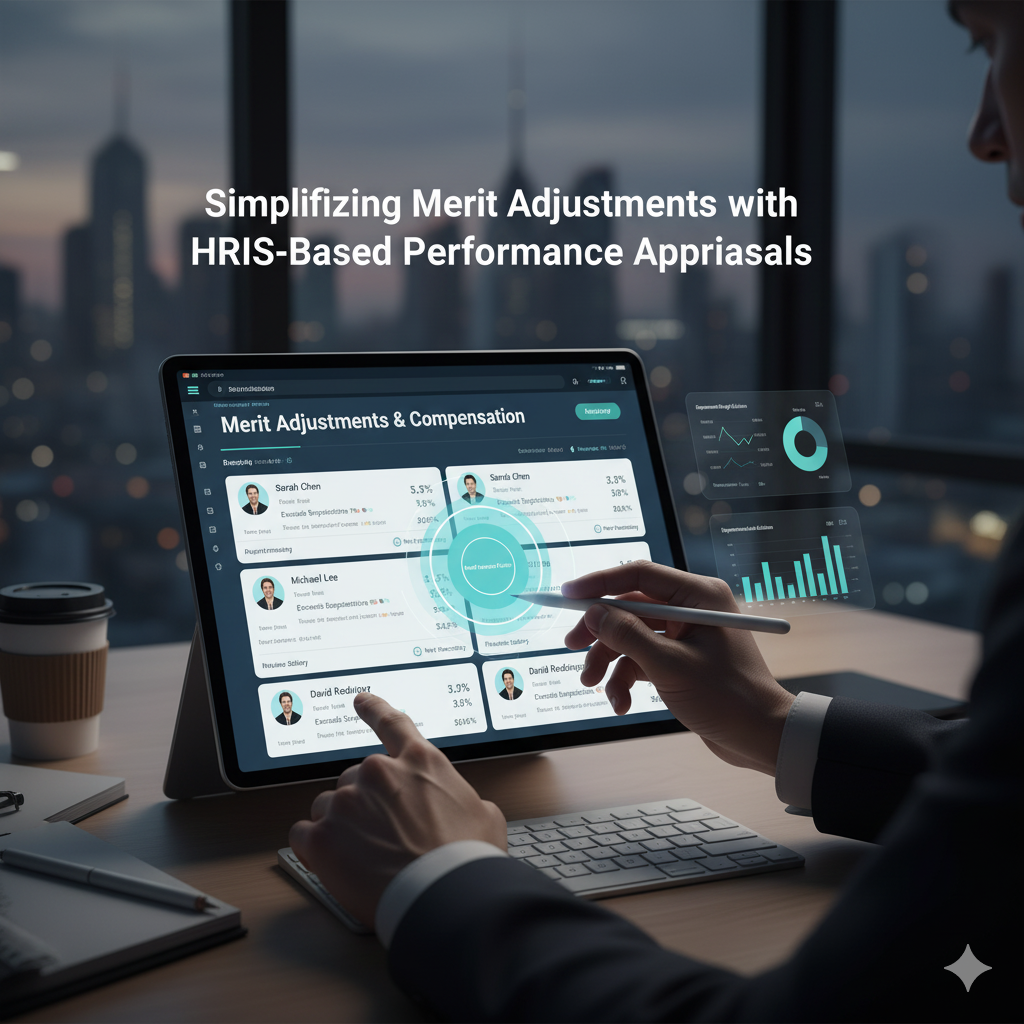Address
Kaypian, San Jose Del Monte City, Bulacan Philippines
Work Hours
Monday to Friday: 8AM - 6PM
Weekend: 10AM - 5PM
Address
Kaypian, San Jose Del Monte City, Bulacan Philippines
Work Hours
Monday to Friday: 8AM - 6PM
Weekend: 10AM - 5PM


Integrated HR. Accurate Payroll.


Integrated HR. Accurate Payroll.

Merit adjustments are a crucial part of employee compensation strategies, ensuring that high performance is recognized and rewarded fairly. Traditionally, this process has been complex, time-consuming, and prone to bias. However, with the rise of Human Resource Information Systems (HRIS), organizations are now able to streamline merit adjustments through performance appraisals. This article explores how HRIS-based performance appraisals simplify merit adjustments, improve transparency, and drive employee engagement.
Merit adjustments refer to salary increases or compensation changes based on employee performance. Unlike standard pay raises, which are often tied to tenure or inflation, merit increases reward employees for their contributions, achievements, and growth. This approach helps companies:
Before the adoption of HRIS, merit adjustments were often handled manually, creating several issues:
A modern HRIS integrates performance management with compensation planning, allowing HR teams and managers to:
By combining appraisal data with compensation frameworks, HRIS ensures accuracy, fairness, and consistency in merit adjustments.
Looking ahead, HRIS will integrate even more advanced technologies such as:
This will enable companies to move beyond reactive merit adjustments toward strategic, proactive compensation planning.
Merit adjustments don’t have to be complicated. With HRIS-based performance appraisals, organizations can simplify the process, ensure fairness, and align compensation with true performance. By leveraging automation, integration, and analytics, HR leaders can create a transparent and motivating workplace where employees are rewarded for their contributions.